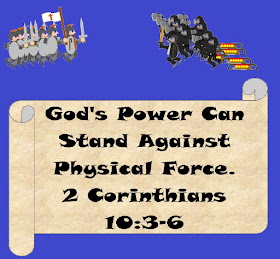While there does not seem to have originally been much difference between them and the established church, once they were excommunicated they began to rethink things. They rejected belief in the physical presence of Christ in the Lord's Supper. They also rejected purgatory and prayers for the dead, giving of oaths, and engaging in warfare. Some even rejected infant baptism. They held to the idea that all Christians (including women) were able to preach and administer the sacraments and claimed that all good men were priests. Some made the mistake of basing the validity of the sacraments on the character of the person administering them.
There were various groups, perhaps of different origins, that were all classified together as Waldensians, although they ultimately divided over minor issues. What they agreed on was following the Bible as the ultimate authority. There were dissenters who were less biblically based. Some held there were two Gods, a good God and a evil God, and it was the evil God who created the physical world. Others sought mystical union with God, leading to holding that God was the sum total of all things and we are all part of God. Still others held that they should overthrow the government and bring in the rule of saints, where all things would be held in common. These were all condemned, pushed to the edges of society, and often confused by the established church. They were also often mixed together themselves, different positions being found in the wrong groups. After the Reformation the Waldensians as a whole became Protestants, though there is no evidence early on that they believed in salvation by grace through faith apart from works. They were heavily persecuted in the area of the Alps, but descendants of the movement exist to the present day. But more importantly, they led the way for other later Bible-based groups that opposed the established church.




